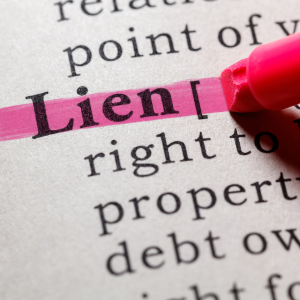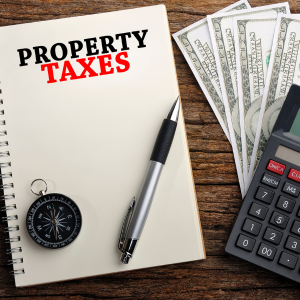
Selling a house with a lien in Baltimore, MD, can feel overwhelming, but it’s doable. Whether the lien is from taxes, contractor fees, or other debts, CR of Maryland I LLC helps you understand the process and move toward a successful sale.
Understanding Property Liens in Maryland
Property liens in Maryland are very important to know about if you want to sell a house in Baltimore City. Liens are legal claims or rights that creditors have over properties. They are used as collateral for debts or other financial commitments. Any property owner has to know what kinds of liens there are and what they mean, because they can make it much harder to sell a house. This part will explain what liens are, why they are important in real estate, and the different kinds of liens you could find in Maryland. It will also assist you in getting through any legal problems you might have.
What Is a Lien and Why Does It Matter?
In real estate, a lien is a legal claim by a creditor on a piece of property. It makes sure that any debts or obligations connected to the property are satisfied. If the loan isn’t paid, the lien gives the creditor the ability to get their money back by selling the property. In Maryland, this kind of claim can happen when property taxes, tax debts, or financial judgments are not paid. From the point of view of a Baltimore City homeowner, a lien is important since it has a direct effect on the title of the property. When selling a house, it’s important to have a clear title that is free of liens. Most purchasers and mortgage lenders, such as banks, need this clarity to move forward with the deal. This need for a title without a lien shows how important it is to know what liens are and what they mean.
Homeowners in Baltimore have to deal with some problems when they sell a house with a lien. If not dealt with properly, a lien can slow down the sale process, making some deals take longer or even stopping them completely. A big problem is that lenders might not accept the buyer’s mortgage until the debt is paid off. Furthermore, property liens can decrease the sale price, as prospective buyers factor in the cost and effort required to address the lien post-purchase. A lien is more than just a way to sell something; it also points to financial problems that need to be fixed right now. It’s an indication of bad financial health because you have unpaid bills, which can make things like getting loans even harder. When a residence is at risk of a lien, it’s not only a legal issue; it’s also a sign of financial health that has to be fixed quickly to keep future financial transactions going smoothly.
In Maryland law, resolving a lien means paying off the debt or obligation that caused it. The creditor and the claimant can talk about this settlement, and the claimant might agree to a payoff that pays off the obligation. If there is a disagreement over the lien, Maryland courts may need to step in and help find a legal settlement. Homeowners who know how these processes work ahead of time will be better able to clear liens quickly, which will make it easier for them to sell their homes without any legal problems. Taking bold steps to quickly resolve liens makes sure that homeowners can move forward with their real estate deals on a solid foundation, free from any past financial problems.
Types of Liens in Maryland: A Closer Look
Maryland law recognizes numerous types of liens, each of which has a unique impact on properties. Property liens are routinely used to secure debts linked to unpaid property taxes. They enable governments to reclaim revenue from non-compliant property owners. If property taxes are not paid, a tax lien can be filed against the property. This type of lien is especially important in Maryland because of the regulations governing property tax enforcement, making it one of the most essential debts to resolve before selling a home in Baltimore City.
Another common form is the judgment lien, which results from a court order forcing a debtor to pay a creditor. Maryland law allows creditors to impose a judgment lien on a debtor’s property, including a home. This type of lien is a barrier to selling a property because it informs potential buyers that the property is encumbered by outstanding obligations that have been handled legally. Judgment liens are frequently the consequence of lawsuits in which the creditor was awarded a victory.
Another type that is important to grasp is the mechanic’s lien. These arise when contractors or laborers are not compensated for services performed on a property. In Maryland, if a contractor has contributed work or materials to improve a property but has not been paid, they may file a mechanics lien. This establishes a temporary lien on the property, forcing the owner to pay existing bills. The presence of this lien can delay all selling proceedings, suggesting that legal action or financial resolution is required.
Voluntary liens, such as mortgages, are also relevant to Maryland homeowners. Unlike involuntary liens resulting from unsettled debts or legal actions, voluntary liens are typically included in mortgage agreements. These are voluntary agreements entered into by homeowners and creditors in which the property serves as security for the unpaid debt. This sort of lien is less confrontational than involuntary liens, yet it is still necessary during a sale if there are outstanding balances on the mortgage.
Finally, Maryland homeowners may suffer HOA liens for delinquent homeowner association dues. Unresolved fees can result in liens that have a negative impact on property transactions in Baltimore City, where many communities are governed by homeowners associations. Similar to other property liens, settling these by paying outstanding bills is normally required to effectively complete any house sale.
Understanding these liens provides Maryland residents with vital insights for navigating real estate transactions efficiently. Addressing these issues in a timely and effective manner not only promotes smoother property sales but also increases financial responsibility, paving the way for future financial and real estate success. Strategic, knowledgeable steps to manage these effects on property titles eventually lead to a smoother transition into new homeownership or investment prospects.
Can You Sell a House with a Lien On It in Maryland?

Selling a house with a lien in Maryland can be challenging, but it is possible to understand the rules and proceed carefully. Liens often make it harder to complete a sale because they affect a buyer’s willingness to move forward. This section discusses how liens impact home sales and the role judgment creditors play in the process. With the proper preparation, you can sell your home for cash in Baltimore and other cities, even if facing financial difficulties. Taking the appropriate steps ensures a smooth transfer of ownership while staying compliant with legal requirements.
How Liens Impact Home Sales
Liens can have a profound effect on the home-selling process in Maryland, presenting several obstacles that homeowners must overcome. A lien primarily obscures the title of a property, signaling to prospective buyers and real estate professionals that there are outstanding financial obligations associated with the home. This outstanding debt serves as a warning sign, likely discouraging potential buyers who are wary of taking on financial responsibilities they did not incur. Financial institutions, including banks, generally hesitate to move forward with mortgage financing unless the lien is resolved, as the property serves as collateral for the loan.
In the Maryland real estate landscape, where a clear title is essential, selling a property encumbered by a lien presents a significant negotiation hurdle. Buyers typically look for a clear title, aiming to invest in a property that is free from any legal or financial encumbrances. Therefore, sellers must either address the lien prior to the sale or negotiate an agreement that accounts for any associated costs. For example, the funds generated from the sale might be required to clear the existing lien, guaranteeing that the buyer obtains clear ownership rights.
Additionally, having a lien may result in a decrease in the property’s selling price. Given that buyers frequently have to take on the responsibility of addressing liens after the purchase, they might demand a reduced price to offset this additional challenge. For individuals looking to invest in Baltimore’s bustling real estate scene, this scenario could present a strategic advantage, particularly for those equipped to manage the lien challenges either internally or through financial means. Liens can often serve as a driving force for initiating proactive negotiations.
When potential buyers are made aware of liens from the start, they might engage in negotiations that lead to quicker resolutions. This could involve adjusted sale prices or shared responsibilities for settling the lien. Highlighting clear communication in property listings and at open houses, even if it may seem counterproductive, builds trust and accelerates the selling process by ensuring everyone is on the same page. For sellers, recognizing liens and establishing realistic expectations is essential in the local context of Maryland.
These liens not only complicate transactions, but grasping the complete scope and nature of each specific lien is crucial for ensuring a seamless sale. Is it a tax lien or a judgment lien? Understanding this difference is crucial in determining if you should handle the matter independently or seek legal help for the appropriate transfer and closing processes. With proper research and expert guidance, homeowners can strategically manage how liens impact their sales, setting the stage for an uncomplicated transition and enhanced negotiation power when selling their house in Maryland.
Clarifying the Role of a Judgment Creditor
A judgment creditor holds an important position in property sales within Maryland, particularly when a home is subject to a lien. Creditors in this context are usually individuals or entities that have secured a court judgment against a debtor, which gives them the legal authority to pursue the recovery of funds owed through the debtor’s assets. Grasping the role and impact of a judgment creditor in property sales empowers Maryland homeowners to optimize their selling strategies.
A lien placed on a property by a judgment creditor signifies a legal ruling that recognizes the creditor’s entitlement to recover debts using the value of the debtor’s property. This legal situation affects the sales process, frequently causing house transactions to be paused until the lien is resolved. When selling a house that has a lien, it’s essential to consider the financial consequences of the judgment or to negotiate a settlement before moving forward with the sale.
For homeowners, interacting with a judgment creditor can present opportunities for negotiation, depending on the particular conditions set forth by the judgment. When a creditor is willing to engage in settlement talks, it can pave the way for swift resolutions, enabling the sale to move forward without obstacles. Homeowners have the opportunity to negotiate payoffs that meet the creditor’s needs while facilitating the transfer of property ownership, leading to more seamless real estate transactions. Settlement could entail applying the sale proceeds directly to settle the lien, thereby clarifying the title for prospective buyers and enhancing the property’s appeal in the real estate market.
The Maryland court system is essential in establishing a legal framework for addressing disputes related to judgment liens. Homeowners who question the legitimacy or value of a lien have the option to pursue legal action to examine and possibly adjust the claims made by the creditor. Proactively addressing these legal nuances can greatly benefit homeowners. It encourages all parties involved, including creditors, to seek settlements that favor amicable resolutions and avoid lengthy legal disputes.
In certain situations, judgment creditors may focus on accepting partial payments or may be open to negotiating installment plans to settle debts associated with a property lien. Having open discussions and considering flexible payment options with creditors can be advantageous, especially when the homeowner cannot make a full payment right away. By setting agreeable terms, sellers can streamline the resolution of the lien issue, facilitating successful home sales.
In essence, the responsibilities of a judgment creditor go beyond just chasing after money; they encompass participation in legal proceedings, negotiations, and occasionally finding common ground. Understanding the complexities of these creditors’ roles within Maryland’s legal framework helps both sellers and buyers to keep their sales objectives achievable. With this understanding, sellers can navigate intricate lien scenarios more effectively, transforming potential sales challenges into manageable opportunities.
How to Resolve Liens When Selling a Home

To sell a house with a lien on it, you need to strategically resolve the lien to clear the title. Homeowners need to know how to successfully deal with liens because they know how important this procedure is. It is important to deal with these claims correctly, whether you are dealing directly with creditors or going via the Maryland court system. This part talks about two important things: getting rid of a lien before you sell your property and working with the Maryland court to make sure that all of your legal and financial problems are fully resolved.
Steps to Clear a Lien Before Selling
Getting rid of a lien on your home before you sell it not only makes the selling process go more smoothly, but it also makes the house more appealing to potential buyers. Getting complete information about the bond is the first thing that needs to be done to resolve it. It’s important for sellers to fully understand the type of lien on the property, whether it’s a tax lien, a judgment lien, or something else. For the next steps in the resolution process, it is important to find the true lien history and the paperwork that goes with it. Talking to the collector directly is often the best way to handle things. Get in touch with the collector or their expert to start talking about how to settle the lien. A lot of the time, creditors are ready to settle for less than the lien’s face value. You can get the lien taken off by making a lump-sum payment or agreeing to an organized payment plan. This makes the sales process easier. To avoid agreeing to terms that are too hard to handle, these financial talks should be carefully planned, and the homeowner’s financial state should be fully understood.
If you can’t pay off the lien all at once, you might want to look into a partial settlement. Some creditors are willing to take less money in exchange for releasing the lien because they know that any settlement, no matter how small, is better than none at all. To get the most out of this strategy, be ready to show that you plan to pay off the debt after the house is sold, maybe with the money from the sale. Getting a real estate or financial expert to help you can give you an unbiased opinion and help you come up with a fair deal offer. Furthermore, buyers should be ready to deal with any extra fees or interest that may have built up. If these prices aren’t checked, they can increase the amount of money needed to get rid of the lien, which adds more problems.
Lastly, it is very important to write down every step of the negotiation and payment process. Keeping accurate records makes things clear and gives you the proof you need if there are legal questions about the lien’s satisfaction and release. After the settlement is paid, it’s important to get a lien release paperwork from the creditor. This official document shows that the lien has been taken away and clears the title, which makes it possible for sales to go through without any problems. In conclusion, getting rid of a lien before selling a house requires smart financial planning, detailed paperwork, and careful communication with creditors. By taking these steps, sellers can effectively counter the possible discouraging effects of liens and make their home more marketable, which will eventually make the sales process easier.
Clear a lien by paying it off, filing a release, and updating records before selling. At CR of Maryland I LLC, we buy houses in Frederick and nearby areas, even with existing liens, offering a quick and hassle-free sale.
Working with the Maryland Court to Resolve a Lien
In some cases, you may need to go to court in Maryland to clear a lien. This can happen when there are disagreements about the lien’s legitimacy or details, and the law needs to step in to settle the issue. The Maryland court provides a critical avenue for sellers encountering complex lien issues. Homeowners should first obtain all the paperwork pertaining to the lien. When you go to court, you need to have court forms, notices, and communication with the creditor. These papers are the most important part of your legal case; thus, you need to have them in order. Taking the time to carefully prepare this information is a smart move toward resolving conflicts in court more effectively.
There are certain rules and steps that Maryland law requires to deal with liens through the court system. Homeowners can file a motion to oppose the lien, saying that it is not valid or that the sum is too high. For people who want to clear the title to their property before selling it, it’s important to know the ins and outs of these legal processes. It’s often helpful to get legal advice when dealing with these legal issues. An attorney who knows a lot about Maryland’s real estate and lien laws can give you very helpful advice. A lawyer can help make sure that filings are correct, on time, and interesting. They work to get the best possible solution for the homeowner, whether that means negotiating or going to court. The main purpose of the Maryland court process is to get a clear title.
Mediation is another option that the courts can help with. This alternative conflict settlement approach lets both sides talk to each other with the help of a neutral third party. Mediation can be less confrontational and more affordable than a full court trial. For many homeowners, mediation can lead to a satisfying settlement that quickly fixes the lien issue so that the sale can go through. The Maryland court may also issue a judgment lowering the lien or providing equitable relief if it believes the homeowner’s claim has validity. This court decision can have a big effect on the homeowner’s ability to move forward with the transaction. If the lien is causing a lot of problems for someone, the court’s judgment can give them the go-ahead to continue forward.
To sum up, engaging with the Maryland court to settle a lien requires a strategic plan, thorough paperwork, and maybe even legal help. Using the court’s tools will help you find clear ways to deal with difficult liens. By getting rid of these problems through the courts, homeowners not only follow Maryland law, but they also make it possible for their homes to be sold successfully. These efforts lead to a clearer way to sell their properties while making sure they follow the law and stay financially stable.
Resolving a lien in a Maryland court requires proper filings and documentation. For guidance, Contact Us at CR of Maryland I LLC.
Alternative Options to Selling a Home with a Lien

It can be hard to sell a house that has a lien on it, especially in Baltimore City. Homeowners often have to try a number of different approaches in order to deal with liens and make a sale go through. Dealing with property taxes through settlements and getting involved in the county’s tax sale process are both good choices. By learning these tricks, homeowners can get through the complicated process of selling a house that has debts attached to it, making sure that all of the debts are paid off while also speeding up the sale.
Lien Discharge Through Property Tax Settlement
Dealing with a lien on a house because of unpaid property taxes is a frequent hurdle for homeowners in Baltimore City. Nonetheless, addressing these issues via a property tax settlement is a definitive action that can result in the removal of liens, thereby facilitating a smoother home sale process. Grasping this process necessitates a comprehensive understanding of local property tax regulations and the county’s methods for addressing tax-related obligations. Home sellers should begin the process of lien discharge by thoroughly reviewing their property tax records, as these documents outline any outstanding taxes that could have led to a lien. These records are usually available via the county’s tax office or through online databases offered by Baltimore City. It’s crucial to confirm the total amount due, taking into account any extra interest or penalties that may have accumulated over time, as these factors will significantly influence the final settlement amount.
After gaining a clear insight into the total amount due, the subsequent step is to reach out to the county’s tax office to discuss potential negotiation options. Numerous counties, recognizing the financial burden that property taxes can create, are willing to engage in conversations regarding payment plans or lowered settlements. For sellers, this typically involves suggesting an installment plan or a one-time payment that settles the debt. Effective negotiation can result in a notable decrease in total expenses, especially for individuals with constrained financial means who are unable to make a large payment all at once. During these discussions, it’s essential to be open about your financial constraints and your plans to sell the property. This strategy fosters a collaborative partnership with the county office, enhancing the chances of achieving a mutually agreeable resolution.
When a property tax lien has progressed to a critical stage, like an upcoming tax sale, prompt action is essential. Baltimore City, similar to various counties, utilizes tax sales to recoup unpaid property taxes. A tax sale enables external parties to purchase the existing lien, thereby settling the unpaid taxes in return for a claim on the property. However, homeowners typically have a window to redeem the property by settling the lien amount with added interest and costs. Actively connecting with local experts, like tax attorneys or financial advisors who understand these processes, can offer valuable guidance and support. These experts can aid in negotiating better terms or provide support in obtaining short-term financing options that facilitate a prompt redemption, thereby mitigating the risk of losing the home entirely. Prior to the occurrence of a county tax sale, considering alternatives such as refinancing or obtaining a short-term loan using the home’s equity can offer the necessary financial support to meet the settlement requirements. This smart financial move allows sellers to effectively resolve tax liens while maintaining the property’s equity for upcoming deals.
Effectively addressing property tax liens through well-thought-out settlements necessitates thorough planning, skilled negotiation, and occasionally, expert guidance. By methodically tackling unpaid taxes, homeowners in Baltimore City can successfully eliminate liens, guaranteeing a clear title before engaging in the housing market. This diligence not only provides peace of mind throughout the selling process but also positions the property as a more attractive prospect for potential buyers, free from the complications associated with liens. Emphasizing this proactive financial management strengthens a homeowner’s negotiating position, reflecting integrity and readiness to undertake the responsibilities of homeownership. Securing a lien discharge via property tax settlement is crucial for successfully selling a house in Baltimore City, harmonizing financial stability with real estate goals.
Looking to sell your home quickly? Avoid the hassle of costly fixes and drawn-out listings. CR of Maryland I LLC provides fair cash offers and handles everything from start to finish. Have questions, or are you ready to start? Call (443) 278-2743 today for a no-obligation offer.
FAQs:
Can You Sell a House With a Lien in Baltimore, MD?
Selling a house with a lien in Baltimore is possible, though it can present challenges. Understanding the process and resolving liens effectively is crucial for a smooth transaction. This may involve negotiating with creditors or addressing issues through the Maryland court system.
What is a Lien in Real Estate?
A lien is a legal claim by a creditor on a property, ensuring that associated debts are paid. If the debt remains unpaid, the creditor can secure payment through the property’s value. This affects the property title, which is significant when selling a house.
What Types of Liens Are Common in Maryland?
Common liens in Maryland include tax liens, judgment liens, mechanic’s liens, and HOA liens. Each has unique implications and legal processes for resolution, impacting property sales differently.
How Do Liens Affect the Home Selling Process in Maryland?
Liens can complicate the selling process by affecting the property’s title and deterring buyers. They often require clearing before a sale can proceed, as most buyers and mortgage lenders prefer lien-free properties for secure transactions.
What Steps Can Homeowners Take to Clear Liens?
To clear liens, homeowners can negotiate directly with creditors or utilize the Maryland court system to resolve disputes. Keeping accurate records and documenting settlements are key to ensuring the lien’s release and securing a clear title.
Helpful Baltimore Blog Articles
- Selling An Inherited House In Baltimore, MD
- Does a Seller Pay Closing Costs in Baltimore, MD?
- Selling a House With a Mortgage in Baltimore, MD
- Selling a Home with Unpermitted Work in Baltimore, MD
- Sell a House with a Lien in Baltimore, MD
- Selling a House to a Family Member in Baltimore, MD
- How to Sell a House with Title Issues in Baltimore, MD
- How to Divide an Inherited House with Sibling in Baltimore, MD
- Selling Home with Reverse Mortgage in Baltimore, MD
- Sell a House As-Is Without Inspection in Baltimore, MD
- How Long Can Seller Stay in House After Closing in Baltimore, MD
